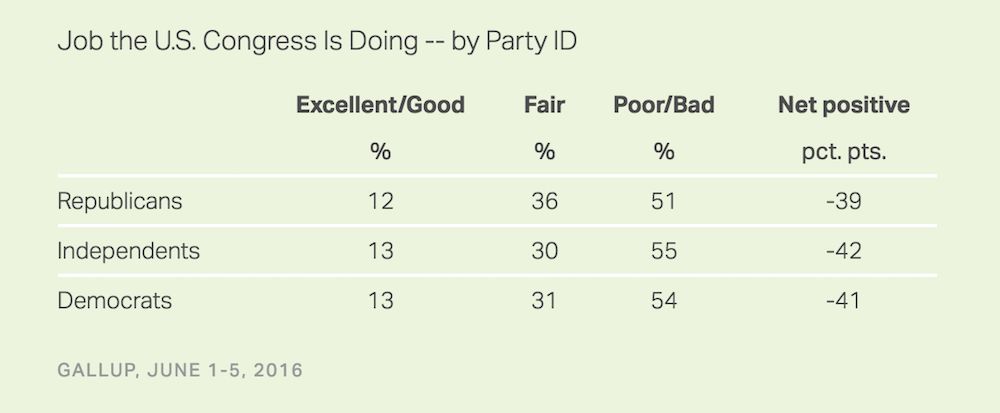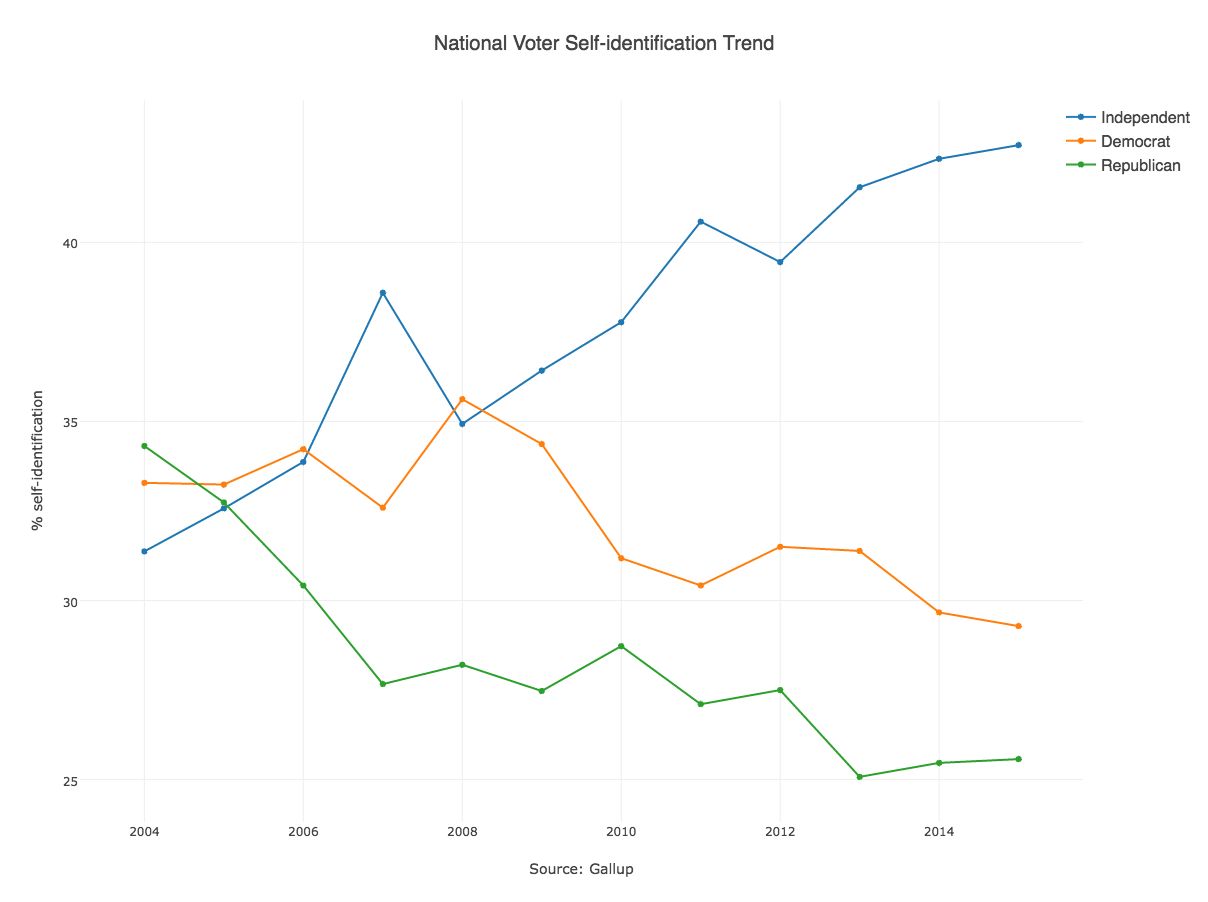Poll: Majority of All Voters Disapprove of Congress

Independents are more likely to disapprove of Congress than voters who identify as Republican or Democrat according to a June Gallup poll.
Fifty-five percent of independents say Congress is doing a "poor" or "bad" job, compared to 54 percent of Democrats and 51 percent of Republicans. Overall, 53 percent of Americans view Congress' performance negatively, according to the poll.
However, when asked about elected representatives of certain parties, independents appear disgruntled. Sixty-four percent of Republicans characterized congressional Democrats' job as "poor/bad," compared to 13 percent of Democrats and 45 percent of independents.
On the other hand, 30 percent of Republican respondents disapproved of their own party's performance, compared to 75 percent of Democrats and 55 percent of independents.
The party distinction draws an extremely understandable line between independents and party-affiliated voters. Very few independents view Congress positively, regardless of party. That is, although Republicans disapprove of Democrat congressmen, and vice versa, independents tend to have negative views of both Republican and Democratic congressional representatives. Sometimes, as this study found, to an even greater extent than either party.
Perhaps this is due to independents' interests being underrepresented or overlooked. If a voter feels that one of the two main parties has ignored his or her interests, he or she may reposition themselves as an independent, which would then fuel this skeptical view of a bipartisan Congress.

Indeed, fewer and fewer Americans are choosing to affiliate themselves with a major party. According to another Gallup poll from 2015, in 2011, the percentage of independents exceeded 40 percent of the American electorate. In 2014, 43 percent of voters identified as independent.
These statistics follow longtime trends, stretching back more than a decade and are continuing to grow. What's more, it's important to keep in mind that newly independent voters are largely coming from the two major parties.
The Republican Party has seen a larger exodus, with a decline greater than that of those still registering as Democrats: only 26 percent of Americans now identify as Republican, compared to 30 percent for Democrats.

However, the large segments of both Republicans and Democrats finding themselves outside party lines in the 2016 elections could bolster the ranks of independents, as Bernie Sanders' supporters hesitate to support Hillary Clinton, and many Republicans shy away from Donald Trump.
It's possible that the growing population of independents will propel their interests onto the public stage, such as increasing voting accessibility for those unaffiliated with either major party. After all, it's in the legislator's best interests to serve the growing bloc of independent voters.
Photo credit: Shutterstock.com / Orhan Cam




